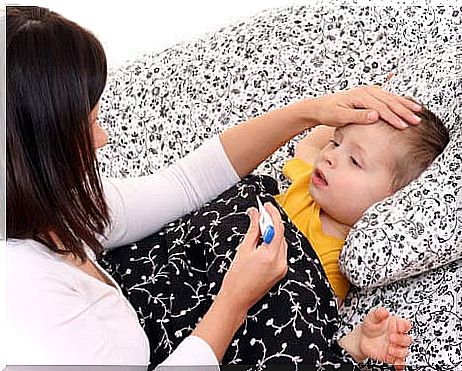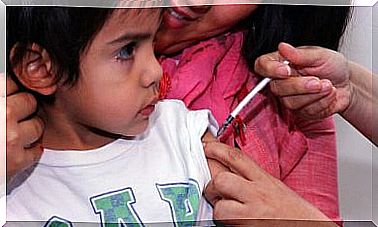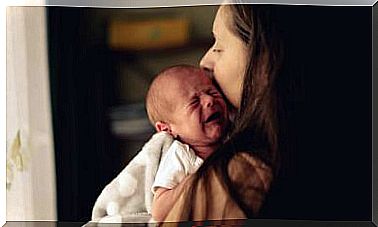Causes Of Swollen Glands In Children
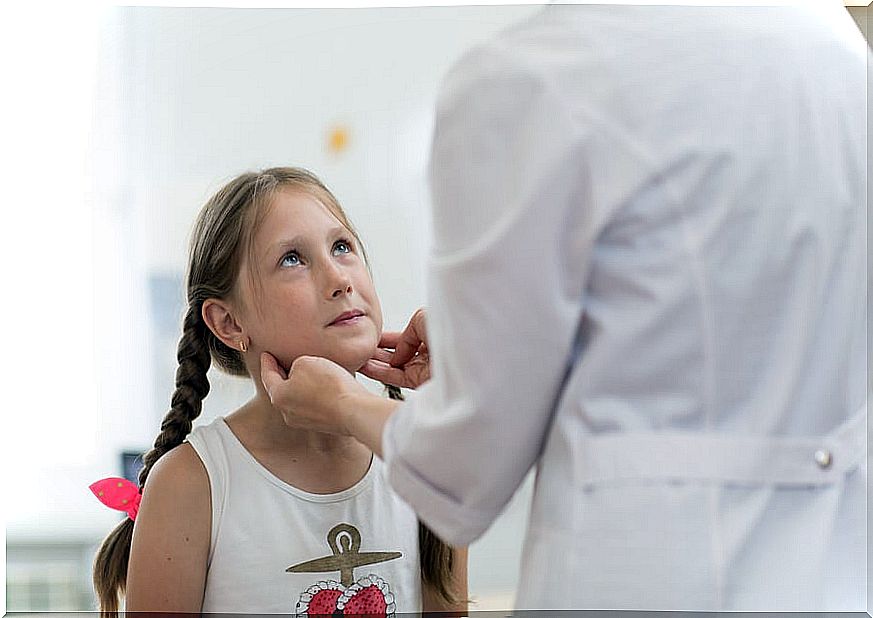
Swollen glands in children can be one of the issues that most concern mothers, although in many cases these do not mean any serious problem. The lymph nodes are like “caretakers” that are on guard when something does not work well in the body.
These are normal structures that play a fundamental role in the body, because they contain cells of the immune system that are responsible for the body’s defenses.
The nodes are part of the lymphatic system, which is a network of vessels smaller than the arteries and veins; They are distributed over almost the entire body, but they are more grouped in specific places, such as the neck, armpits and groin.
Swollen glands in children
It is very common that in the pediatric area many cases of swollen glands are observed in children, because at this early age, the body is very prone to this happening.
It is very simple to detect that the child has a swollen lymph node, since it grows abnormally; it can look like a small lump and cause pain, in some cases.
Also, do not forget that the child’s body is very rich in lymphatic tissue. Therefore, swollen glands in children are a common manifestation because young children have more obvious immune responses to repeated bacterial infections, especially in their first four years.
What is lymphatic tissue?
It is the tissue that makes up the lymph nodes and lymphoid cells. The lymphatic system is part of the body’s immune system, which works to fight disease and infection. In turn, it goes through many changes during a child’s growth, so it grows steadily until puberty and then more slowly.
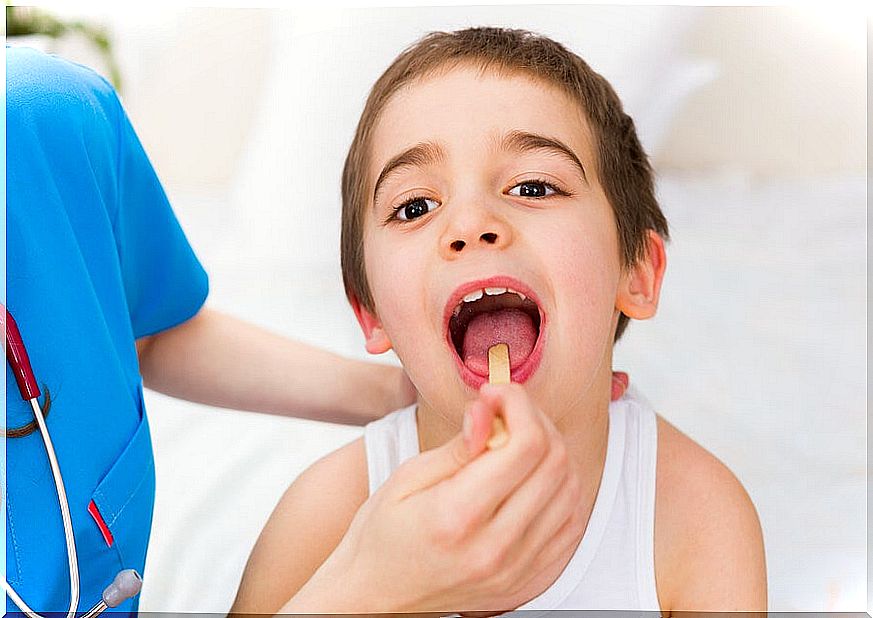
On the other hand, swollen lymph nodes may be more or less noticeable to the touch. It is less common in younger babies, but it is very normal to perceive them thickened in older children, between two and fifteen years old, who have suffered an infection.
Main causes of swollen glands in children
Swollen glands in children can be caused by bacteria and infections such as colds, pharyngitis, tonsillitis, otitis, sinusitis, conjunctivitis. They produce some pain in the affected area; This can occur continuously over short periods of time.
On the other hand, it is also possible that they are inflamed by a parasite or a fungus. Although it is not very common for this to happen in children, precautions should always be taken.
In very rare cases, they are a symptom of serious immune diseases (disorders in which the immune system attacks healthy cells in the body), or neoplastic (they arise as a result of an alteration in the cells of the tissues).
Even less common are swollen glands caused by more important infections, such as mononucleosis, immune diseases, endocrinological (hypothyroidism, corticosteroid deficiency), rheumatological diseases (lupus erythematosus, rheumatoid arthritis), vasculitis (Kawasaki disease), tumors (lymphomas, leukemias , tumor metastases) or some drugs.
Warning signs of swollen glands in children
Although most of the diseases that produce lymphadenopathy are benign, it is important to take into account a series of characteristics that could alert us to the possibility that it is the manifestation of a serious disease. So, d We must give it importance when:
- The consistency of the ganglion is very hard.
- Its size is greater than three centimeters and progressively increasing.
- If they appear in a generalized way throughout the body.
- They are accompanied by weight loss, prolonged fever, general aches and pains, and paleness.
- There is an enlargement of the liver or spleen, which can cause a distention of the abdomen of the child.
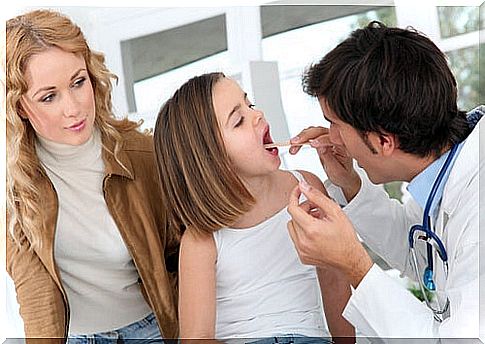
How is this problem treated?
Treatments for swollen glands in children are aimed at curing the process that causes them; for example, otitis. When this is achieved, the nodes will tend to return to their original size.
If it is a bacterial infection, antibiotics must be used; meanwhile, symptomatic measures will only be applied if it is viral. Likewise, there are specific infections and adenopathies that respond to a tumor pathology that require specific treatment and special care.
Normally, swollen glands in childhood are well treated with the above measures. If in doubt, it is recommended to visit the pediatrician so that he can make a diagnosis and prescribe the most appropriate treatment.
